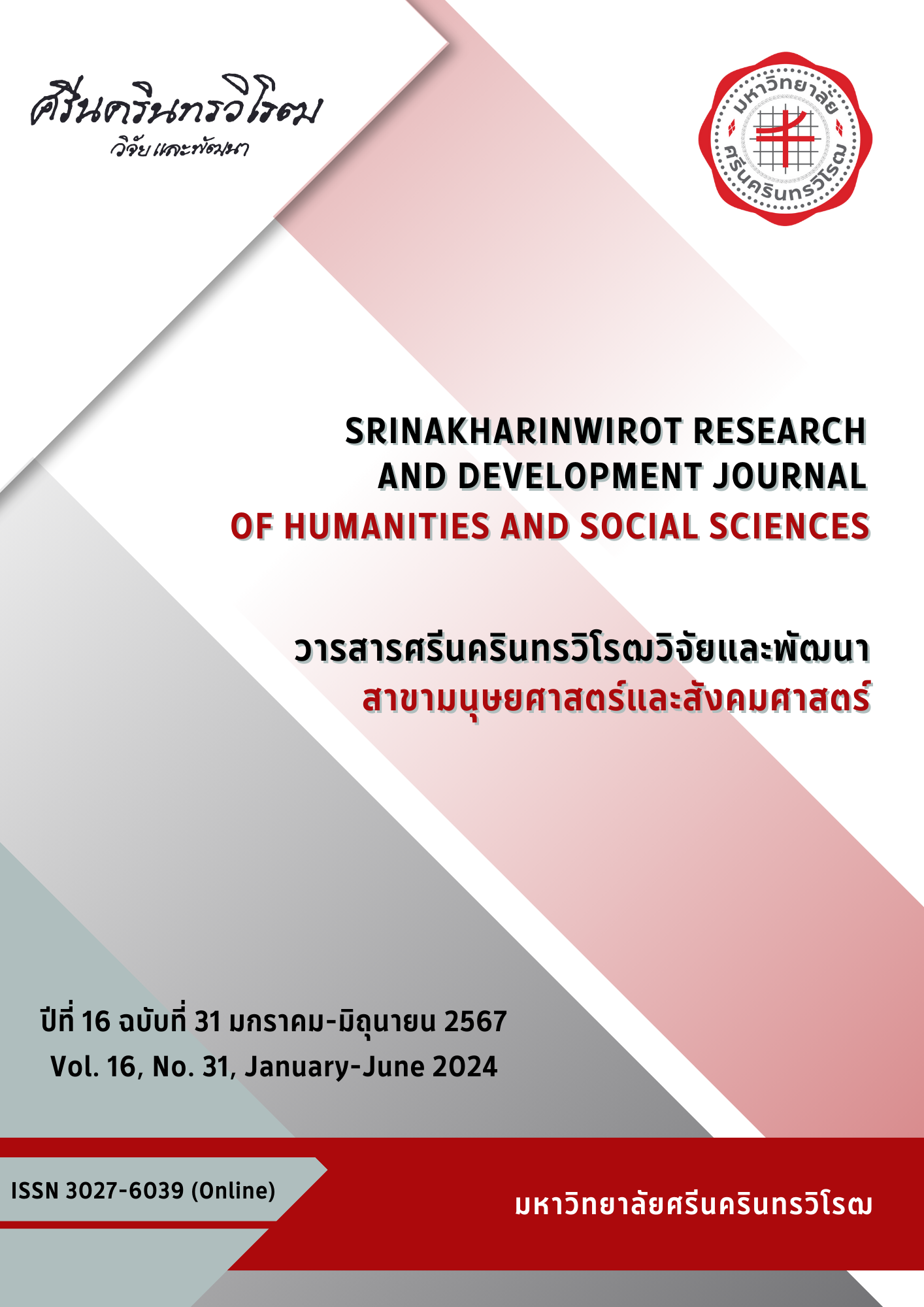BELT AND ROAD INITIATIVES: LOOK INTO MALAYSIA AND CHINA ECONOMIC RALATIONS AND MALAYSIAN DOMESTIC POLITICS
Keywords:
Malaysia, China, Ethnic Politics, BRIAbstract
The research on Belt and Road Initiative: look into Malaysia and China economic relations and Malaysian domestic politics aims to study the evolution of the relationships between China and Malaysia under the condition of domestic ethnic politics in Malaysia that affects the Belt and Road’s cooperation. The research employed qualitative research method based on documentary analysis. Documents were collected from various sources. The results of the study reveal that relations between Malaysia and China under the condition of Malaysian ethnic politics has played as a significant factor and influenced on the view of Malaysian leaders, Malaysian economic development polices and the relationships with China. The research observed the relationships from Mahathir era to Abdullah Badawi and Najib Razak as these leaders have implemented economic pragmatism with China. The relationship with China has been upgraded and strengthen during Najib’s era due to the 1MDB. Consequently, opposition parties under the Alliance of Hope used this issue as a part of political campaign to attack Najib during the election in 2018. Though, Mahathir returned as the prime minister with opposition behind him, the relationship with China has not been affected as many expected.
Downloads
References
Aman, A. S. (2021). China remains Malaysia’s largest foreign partner for manufacturing sector, says MIDA. New Straits Times. Retrieved from https://www.nst.com.my/business/2021/02/667984/china-remains-malaysias-largest-foreign-partner-manufacturing-sector-says
Lee, C. (2016). Deepening of malaysia’s economic ties to china: What are the implications?. Perspective. Issue 2016, No. 69. Retrieved from https://www.iseas.edu.sg/wp-content/uploads/pdfs/ISEAS_Perspective_2016_69.pdf
1MDB sells Edra to China General Nuclear Power Corp. (2015). New Straits Times. Retrieved from https://www.nst.com.my/news/2015/11/113438/1mdb-sells-edra-china-general-nuclear-power-corp
Malhi, A. (2018). Race, Debt and Sovereignty - The ‘China Factor’ in Malaysia’s GE 14. The Round Table, 107(6), 717-728. https://doi.org/10.1080/00358533.2018.1545939
Liu, H., and Lim, G. (2019). The Political Economy of Rising China in Southeast Asia” Malaysia’s Response to the Belt and Road Initiative. Journal of Contemporary China, 28(11), 216-231. https://doi.org/10.1080/10670564.2018.1511393
Rolland, N. (2017). China’s belt and road initiative: Underwhelming or game-changer?. The Washington Quarterly, 40(1), 127-142. https://doi.org/10.1080/0163660X.2017.1302743
Shambaugh, D. (2018). U.S.-China rivalry in southeast asia: Power shift or competitive coexistence. International Security, 42(2), 85-127. https://doi.org/10.1162/isec_a_00314
Zhou, W., and Esteban, M. (2018). Beyond balancing: China’s approach towards the belt and road initiative. Journal of Contemporary China, 27(112), 487-501. https://doi.org/10.1080/10670564.2018.1433476
Gong, X. (2019). The belt & road initiative and China’s influence in Southeast Asia. The Pacific Review, 32(4), 635-665. https://doi.org/10.1080/09512748.2018.1513950
Hong, Z. (2016). China’s one belt one road: An overview of the debate. Trends in Southeast Asia, 2016(6), 1-33.
Haque, M. S. (2003). The role of the state in managing ethnic tensions in malaysia: A critical discourse. American Behavioral Scientist, 47(3), 240-266. https://doi.org/10.1177/0002764203256186
Brown, D. (1994). The state and ethnic politics in Southeast Asia. London: Routledge.
Teik, K. B. (1995). Paradoxes of Mahathirism: An intellectual biography of mahathir mohamad. Oxford: Oxford University Press.
Jomo, K. S., and Chong Hui, W. (2014). Malaysia@50 Economic Development, Distribution, Disparities. Singapore: World Scientific Publishing Co. Pte. Ltd.
Gomez, E. T. (1999). Chinese business in malaysia: accumulation, ascendance, accommodation. Surrey: Curzon Press.
Tan, J. (2008). Privatization in Malaysia: Regulation, rent-seeking and policy failure. Oxon: Routledge.
Gomez, E. T. (2002). Political business in Malaysia: party factionalism, corporate development, and economic crisis. In Edmund Terence Gomez (Ed.) Political Business in East Asia (pp. 82-114). London: Routledge.
Whah, C. Y., and Cheng Guan, B. T. (2017). Malaysia’s protected affirmative action policy and the evolution of the bumiputera commercial and industrial community. Sojourn, 32(2), 336-373.
Saravanamuttu, J. (1996). Malaysia’s foreign policy in the mahathir period, 1981-1995: An iconoclast come to rule. International Journal of Phytoremediation, 4(1), 1-16.
Tantikulananta, C. (2021). Malaysian ethnic politics: Economic relations with China and Belt and Road Initiatives. Bangkok: Thammasat University Press.
Chin, J. (2010). Malaysia: The rise of najib and 1malaysia. Southeast Asian Affairs, 2010, 165-179.
Sun, Oh Ei. (2014). Malaysian chinese in a transitioning malaysia. In Mohamed Nawab Bin Mohamed Osman (Ed.) The 13th Malaysia Elections: Issues, Trends and Future Trajectories (pp. 36-50). Singapore: S. Rajaratnam School of International Studies. https://www.files.ethz.ch/isn/186280/Monograph30.pdf
Gomez, E. T, and Jomo, K. S. (1999). Malaysia’s Political Economy. Politics, Patronage and Profits. Cambridge: Cambridge University Press.
Kuik, C.-C. (2012). Malaysia’s china policy in the post-mahathir era: A neoclassical realist explanation. RSIS Working Paper No. 224. Retrieved from https://www.files.ethz.ch/isn/152135/WP244.pdf
Chin, J. (2016). Najib’s china legacy, is malaysia turning its back on the west?. Policy Forum. Retrieved from https://www.policyforum.net/najibs-china-legacy/
Berger, B. H. (2018). Malaysia’s canceled belt and road initiative projects and the implications for china. The Diplomat. Retrieved from https://thediplomat.com/2018/08/malaysias-canceled-belt-and-road-initiative-projects-and-the-implications-for-china/
Segawa, N. (2013). Ethnic politics in malaysia: Prospects for national integration. Nationalism and Ethnic Politics, 19(2), 210-232. https://doi.org/10.1080/13537113.2013.788918
Kuik, C.-C. (2013). Making sense of malaysia’ china policy: Asymmetry, proximity, and elite’s domestic authority. Chinese Journal of International Politics, 6(4), 429-467.
Downloads
Published
How to Cite
Issue
Section
License
Copyright (c) 2024 Srinakharinwirot Research and Development Journal of Humanities and Social Sciences

This work is licensed under a Creative Commons Attribution-NonCommercial-NoDerivatives 4.0 International License.
Srinakharinwirot Research and Development Journal of Humanities and Social Sciences is licensed Under a Creative Commons Attribution-NonCommercial-NoDerivs 4.0 International (CC-BY-NC-ND 4.0) License, Unless Otherwise Stated. Please Read Journal Policies Page for More Information on Open Access, Copyright and Permissions.



